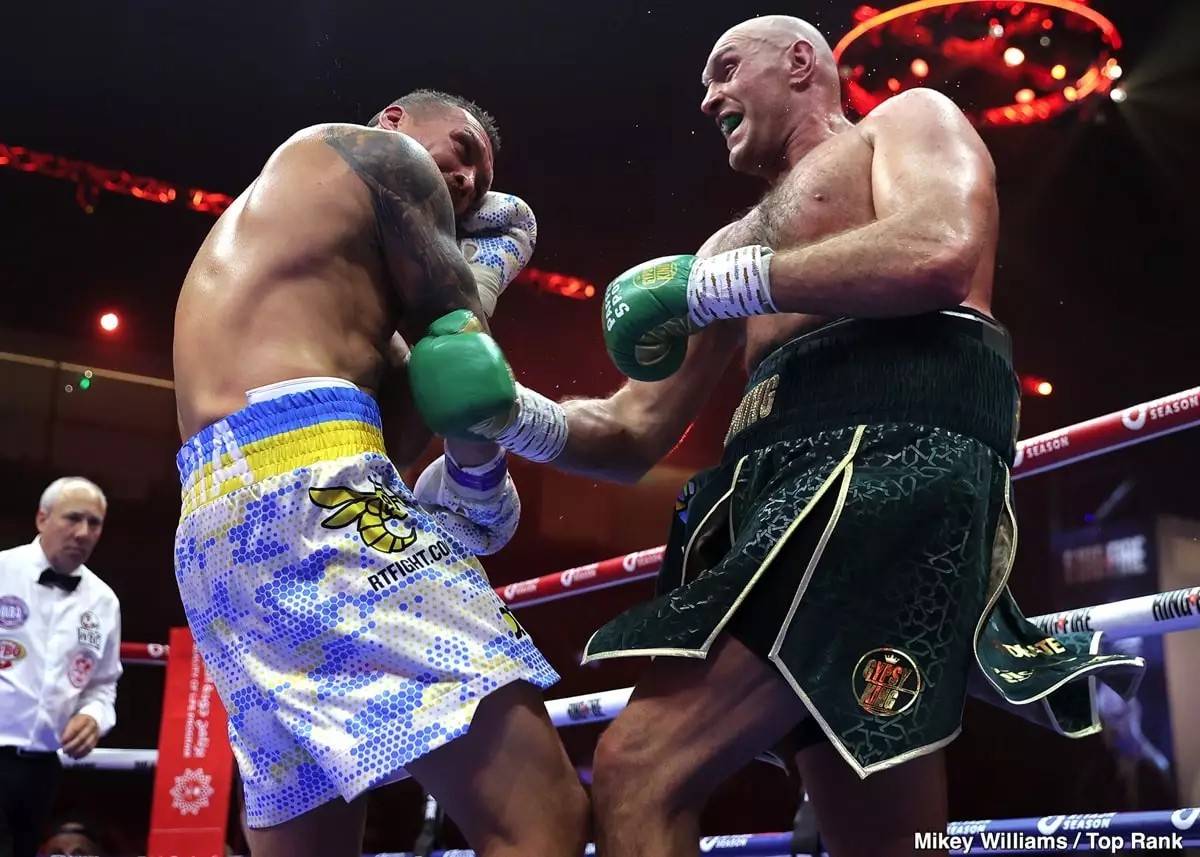Tyson Fury’s upcoming rematch against Oleksandr Usyk on December 21, 2023, has generated a wave of curiosity and speculation surrounding the psyche of the British boxer. For many, Fury epitomizes the quintessential fighter who frequently dons the cape of a victim, especially following his contentious first encounter with Usyk on May 18, 2023. This article delves into the psychological implications of Fury’s mindset, the ramifications of his self-perception, and how these mental barriers affect his performance in the ring.
Fury’s assertion that he may fall victim to the judges again foreshadows a potentially damaging mindset heading into the rematch. Rather than accepting past performances as reflective of his abilities, Fury seems to rely on an external narrative, framing himself as a casualty of circumstance. In the clash earlier this year, while one judge awarded him a narrow victory, many observers noted that Fury had not adequately showcased his skills over multiple rounds, particularly in a few crucial segments where Usyk was decidedly in control. This lingering sense of injustice, rather than fueling his motivation, may hinder his progress by introducing self-doubt.
A fighter’s confidence is often bolstered by their belief in their ability to perform unencumbered by external influences, such as unfavorable judging. By entering this rematch with the mindset that he is bound to be judged unfairly, Fury risks neurotically shaping his approach to the bout. The cognitive burden of battling perceived biases can be detrimental, diverting energy from training, strategy, and executing his plan of attack against an opponent known for tactical superiority.
Fury’s comparison of his mindset for this upcoming bout with his second fight against Deontay Wilder in 2020 fails to acknowledge the stark differences in styles between his past and present adversaries. Wilder, a puncher noted for his knockout power, presented a uniquely polarizing challenge, wherein Fury’s significant size and evasive ability allowed him to dismantle Wilder’s offense. However, Usyk, who commands an entirely different skill set as an experienced and agile boxer, will not be easily overpowered or intimidated.
Moreover, one must examine Fury’s previous reluctance to admit defeat in tightly contested matches. His earlier bout against John McDermott, where many viewed the outcome as a travesty, muddied the waters of his self-assessment. This history reinforces the notion that Fury often grapples with acknowledging the reality of his performances. Entering the ring believing he is up against a formidable wall rather than facing a skilled opponent may lead Fury to underestimate the task ahead.
One intriguing aspect of Fury’s psychology is his excitement about competing as the challenger rather than the champion. This undercurrent hints at a revitalization of ambition, perhaps feeding into a primal instinct for a fighter to prove themselves. Yet, this self-mythologizing also raises questions about what happens if he fails to reclaim his title—a scenario he often skirts around. The possibility of miscalculating his return to glory looms large, leaving spectators wondering whether he’ll readily forge ahead into a trilogy or pursue alternate lucrative bouts.
Fury’s expressive yet paradoxical personality continually reveals a desire for acknowledgment. The champion’s mindset can often breed complacency; thus, entering a match from the perspective of an underdog may spark a more urgent, high-stakes performance. Yet, the inherent risks accompany such changes in motivation, exposing him to fear of failure and possible disillusionment if he does not achieve the anticipated triumph.
Reflecting on the immense stage that awaits Fury and Usyk, the outcomes of this rematch could shape Fury’s legacy significantly. Should he emerge victorious, it may ignite the much-discussed trilogy, solidifying a rivalry that transcends mere competition. However, if Usyk prevails, Fury might face more than just a loss; he may confront the sobering realities of a fighter’s life—a retreat from the spotlight accompanied by a potential shift in public perception.
The psychological intricacies of Tyson Fury illustrate that fighting is as much about mental fortitude as physical prowess. As we await December 21, boxing fans will undoubtedly tune in for more than just the fight; they will seek an understanding of a complex individual layering realities and ambitions intertwined in the fabric of each punch thrown.

